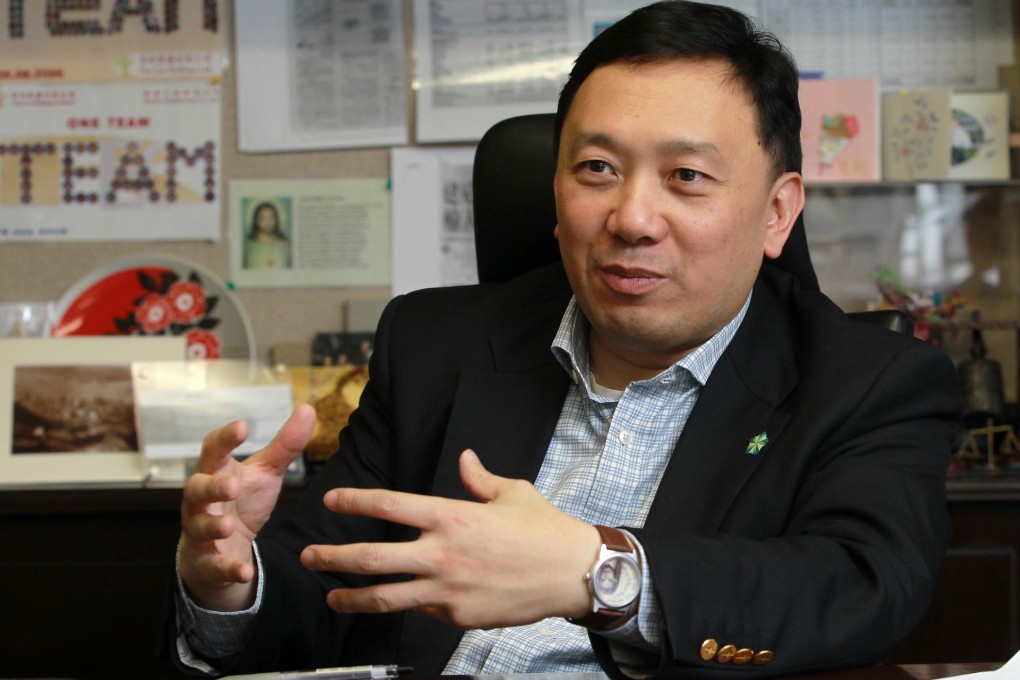Green Development Council chairman on a mission to save planet
For Conrad Wong, the promotion of greener building standards is nothing less than a mission to save the planet, as the head of the Hong Kong Green Development Council says

Hong Kong Green Development Council chairman Conrad Wong Tin-cheung has a mission: save the planet.
With more than 20 years of construction project management experience, Wong has been contributing to sustainable development in Hong Kong and leading the industry towards greener practices, in the hope that will minimise environmental impacts while maximising benefits for the city's people.
Wong is also a vice-chairman of Yau Lee Holdings, controlled by the family of the late Henry Fok Ying-tung.
To prove that going green is not a cost but an investment, Yau Lee built its Holiday Inn Express Soho in Sheung Wan with a focus on environmentally friendly features. As a result, it uses about 60 per cent less energy than other similar buildings.
Hong Kong is one of the most densely populated cities in the world, packed with high-rise buildings. Buildings in Hong Kong account for 90 per cent of electricity use and 60 per cent of carbon-dioxide emissions. A low-carbon, sustainably built environment will play a crucial role in protecting the city's environment.